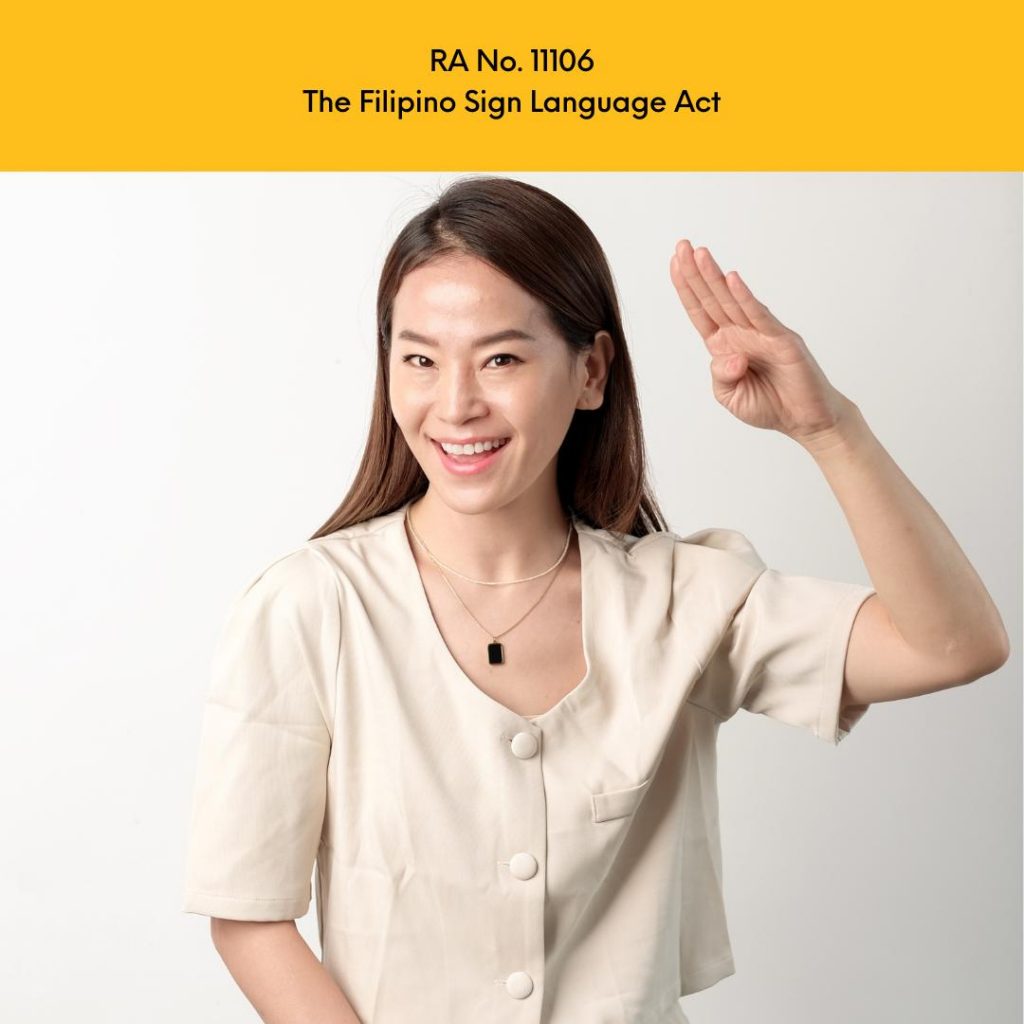
Published 29 November 2024, The Daily Tribune
True to the country’s commitment to promoting inclusivity and eliminating discrimination, Republic Act 11106, otherwise known as The Filipino Sign Language Act, was signed into law on 30 October 2018.
It was enacted to promote and protect the rights of persons with disabilities, in compliance with the United Nations Convention on the Rights of Persons with Disabilities.
The measure safeguards the full and equal enjoyment of all human rights and fundamental freedoms by persons with disabilities, thereby ensuring their full and effective participation and inclusion in society.
Hence, as provided under Section 3 of RA 11106, Filipino Sign Language (FSL) is declared the national sign language of the Philippines and it shall be recognized, promoted, and supported as the medium of official communication in all transactions involving the deaf, and as the language of instruction of deaf education, without prejudice to the use of other forms of communication depending on individual choice or preference.
RA 11106 covers a wide array of areas, including but not limited to, education, workplace, health system, media, and other public transactions, services, and facilities, etc.
In recognizing that the deaf are equally deserving of their opportunity to be heard, Section 6 of RA 11106 takes account of FSL in the Justice System. The law provides that FSL shall be the official language of legal interpreting for the deaf in all public hearings, proceedings, and transactions of courts, quasi-judicial agencies, and other tribunals.
Aside from this mandate, the law requires courts to ensure the availability of a qualified sign language interpreter in all proceedings involving the deaf, but that he/she has the right to choose other forms or modes of communication as may be preferred. To establish efficiency, the law also requires that court personnel, interpreters, and other staff who work in the administration of justice be given appropriate training.
In a recent welcome development, the Supreme Court organized a committee to draft the Rules on Filipino Sign Language Interpreting in the Judiciary. On 27 May 2024, the Technical Working Group, chaired by Associate Justice Japar B. Dimaampao, commenced discussions on the proposed rules.
Discrimination, including ableism, remains a pressing issue which undermines the rights and dignity of the deaf. In line with the State policy to promote, protect, and ensure the full and equal enjoyment of all human rights and fundamental freedoms of persons with disabilities, RA 11106 proves to be a positive initiative towards eradicating discrimination of any form and encouraging their active participation and inclusion in society.
RA 11106 is a manifestation that the scales of justice do not sway based on a person’s ability, but that justice must be accorded to all, including our fellow Filipinos with disabilities.
For more of Dean Nilo Divina’s legal tidbits, please visit www.divinalaw.com. For comments and questions, please send an email to cad@divinalaw.com.

